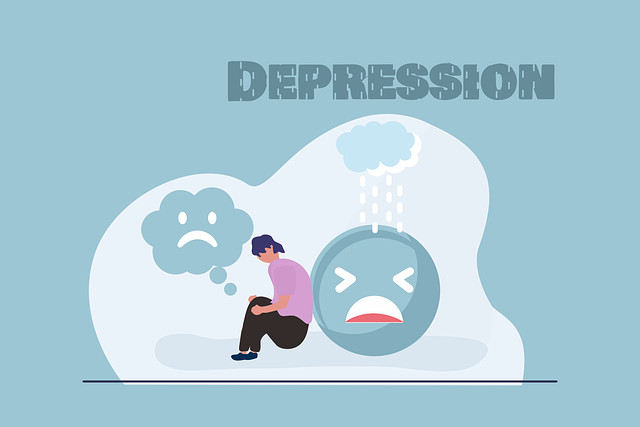In mental health practice, cultural and spiritual sensitivity is vital for effective therapy. Parker Spiritual-Religious Issues Therapy focuses on understanding clients' religious beliefs and spiritual practices, fostering open dialogue and resilience building. This approach tailors interventions to diverse backgrounds, promoting holistic emotional healing by leveraging spiritual resources. Key components include identifying risks like interfaith conflicts or trauma's impact on religion, creating safe spaces for honest expression, integrating self-care and stress management techniques, and ongoing professional development in spiritual care. Clear boundaries, ethical guidelines, proactive risk assessment, informed consent, and inclusive practices empower clients to manage emotions, ensuring culturally sensitive care.
Mental health professionals face unique challenges, particularly when addressing cultural and spiritual sensitivity. This comprehensive guide explores critical risk assessment strategies essential for therapists navigating diverse client populations. We delve into understanding spiritual-religious issues in therapy, identifying potential risks, and implementing effective mitigation strategies to foster safe, inclusive environments. By embracing these practices, professionals can enhance their abilities to support clients while minimizing inherent therapeutic risks.
- Understanding Cultural and Spiritual Sensitivity in Mental Health Practice
- Identifying Potential Risks: A Comprehensive Approach for Therapists
- Strategies for Mitigating Risks and Fostering Safe Therapeutic Environments
Understanding Cultural and Spiritual Sensitivity in Mental Health Practice

In the diverse tapestry of mental health practice, cultural and spiritual sensitivity is a vital thread that weaves through effective therapy. Mental health professionals must recognize and embrace the intricate interplay between spirituality and emotional healing processes, especially when addressing Parker Spiritual-Religious Issues in therapy. Understanding clients’ religious beliefs and spiritual practices enables therapists to create a safe and supportive environment, fostering open dialogue and facilitating resilience building.
By integrating cultural competence, mental health professionals can navigate complex issues related to emotional regulation, ensuring that therapeutic interventions are tailored to each individual’s unique background. This approach respects the holistic nature of human experiences, allowing for more profound emotional healing processes. It also promotes resilience by empowering clients to draw upon their spiritual resources, which can be a powerful tool in managing mental health challenges.
Identifying Potential Risks: A Comprehensive Approach for Therapists

Identifying potential risks is a cornerstone for therapists practicing Parker Spiritual-Religious Issues Therapy. It involves a comprehensive approach that transcends mere clinical assessment. Therapists must consider the unique challenges their clients face, such as interfaith conflicts, spiritual crises, or the impact of traumatic experiences on religious beliefs. This requires an openness to explore sensitive topics and cultural nuances, fostering a safe space for clients to express their struggles honestly.
A strategic approach includes integrating self-care practices, conflict resolution techniques, and stress management workshops within the therapeutic framework. By prioritizing their own well-being and learning effective coping mechanisms, therapists can better support their clients’ journeys. Regular participation in professional development opportunities, especially those focused on spiritual care, ensures therapists stay equipped to navigate complex issues that may arise in this specialized domain.
Strategies for Mitigating Risks and Fostering Safe Therapeutic Environments

Creating safe spaces is paramount for mental health professionals to effectively support their clients’ journeys. Strategies for mitigating risks involve a multi-faceted approach. Firstly, establishing clear boundaries and ethical guidelines specific to spiritual-religious issues therapy is essential. This includes proactive risk assessment during initial client assessments, ensuring informed consent, and having protocols in place for managing sensitive topics.
Fostering a therapeutic environment that encourages open dialogue about beliefs and values, while respecting individual differences, can significantly enhance client safety. Incorporating practices like mindfulness meditation from the Mental Wellness Podcast Series Production or integrating mental wellness coaching programs development can empower clients to navigate challenging emotions and thoughts. Such approaches create an atmosphere of trust, enabling professionals to provide culturally sensitive care tailored to each client’s unique needs, including those with spiritual-religious considerations.
Mental health professionals play a vital role in fostering safe and supportive environments, especially when addressing complex cultural and spiritual sensitivity issues. By understanding the potential risks and implementing effective mitigation strategies, therapists can enhance their practice, as highlighted by the Parker Spiritual-Religious Issues Therapy framework. This comprehensive approach ensures that clients receive culturally competent care while minimizing professional risks. Through continuous learning and adopting inclusive practices, mental health professionals can navigate these challenges successfully, ultimately improving therapeutic outcomes.














